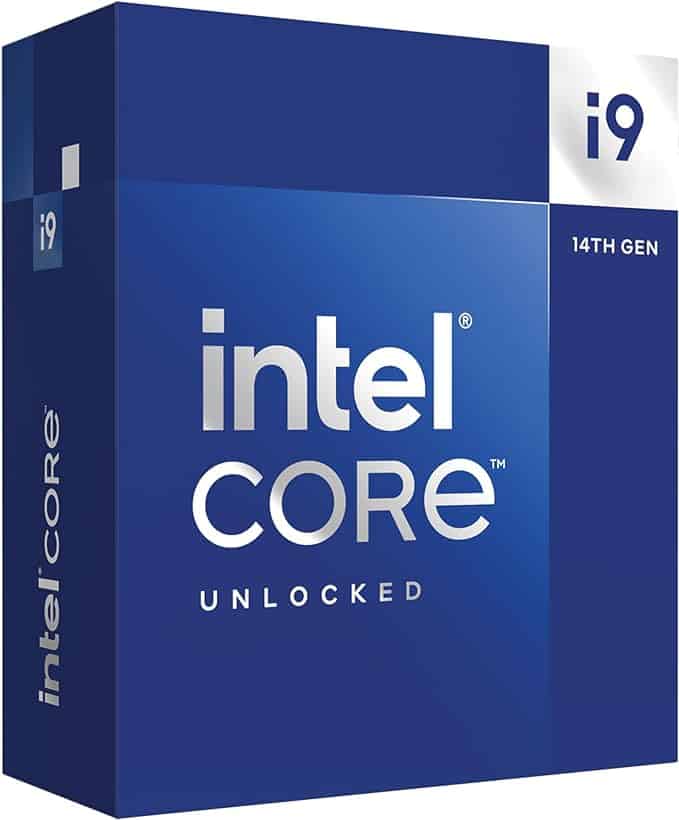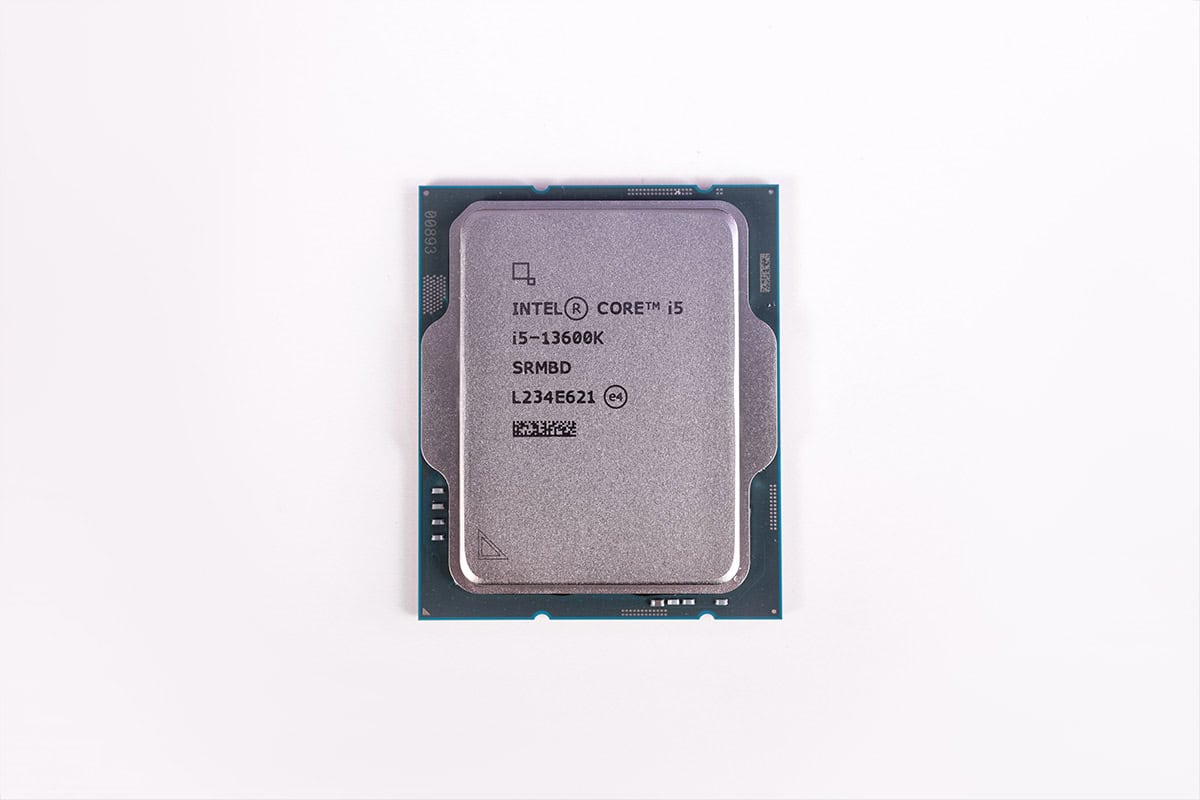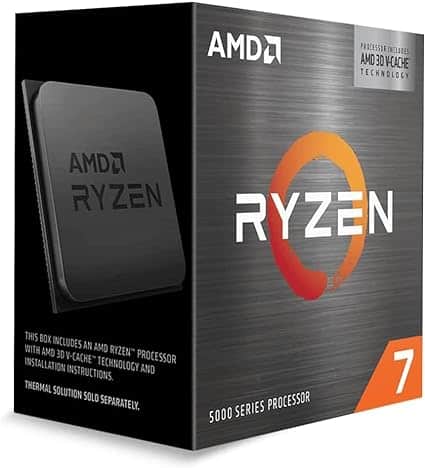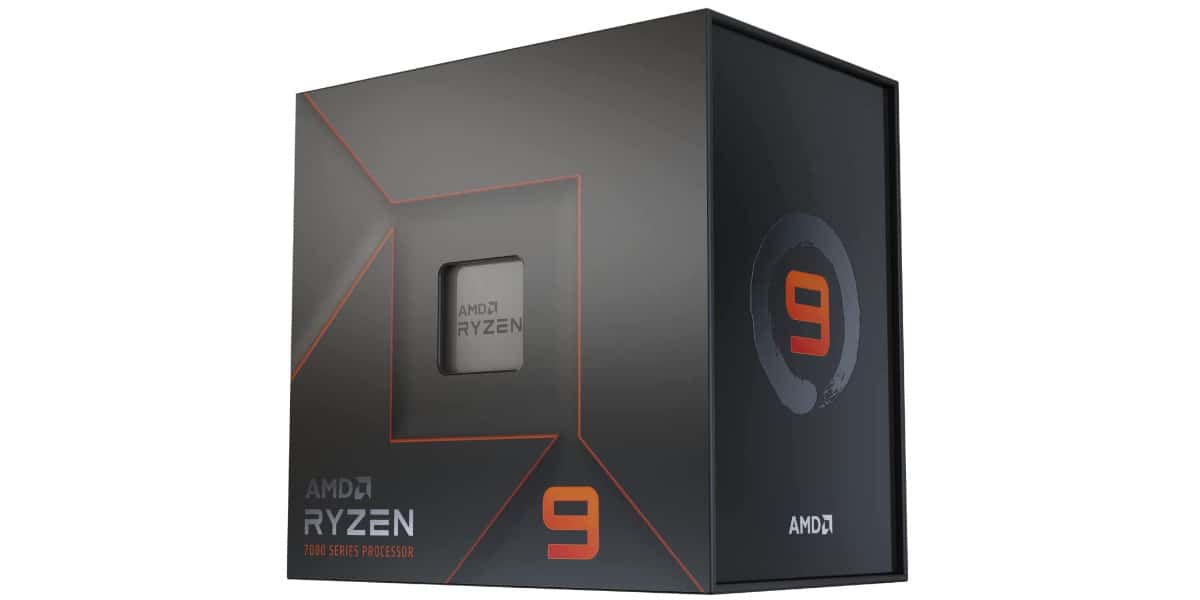Ryzen 9 9950X Vs Ryzen 9 7950X – How good is Zen 5 over Zen 4?
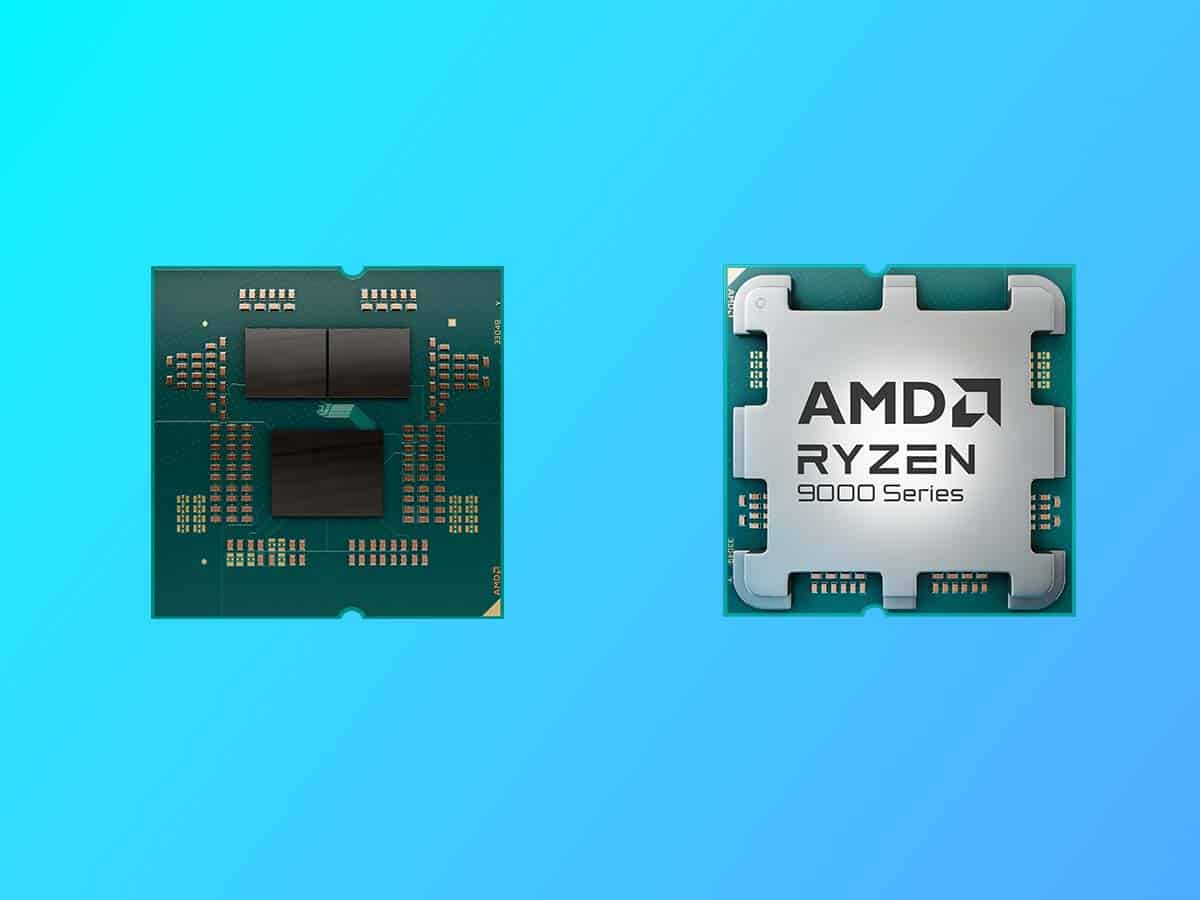
Table of Contents
AMD is about to release its Ryzen 9000 series CPUs and with it a surprise addition of two new Zen 3-based CPUs for AM4. How’s that for keeping it in support? Here we have two flagships competing head to head. This is the generational showdown you’ve all been waiting for, it’s Zen 5 vs Zen 4, the best of the best from both the 9000 series and the 7000 series. Which will prevail?
It’s hard to deny the uplift that Zen 5 has over Zen 4, as we have explored in various Vs pieces, but will it have quite the impact against something a little closer to its capabilities? Will the 16% projected uplift in IPC really make that much of a difference in terms of real-world application? These CPUs both look very similar on paper and might even look the same to the untrained eye, but it’s all about generation.
If AMD announcing the release date for the Ryzen 9000 series has you in the mood to pre-order, you can check out our where to buy page on the 9950X. There, we list all the retailers that we expect will be accepting pre-orders closer to release. So keep an eye out and secure your 9000 series on day one.
AMD Ryzen 9 9950X
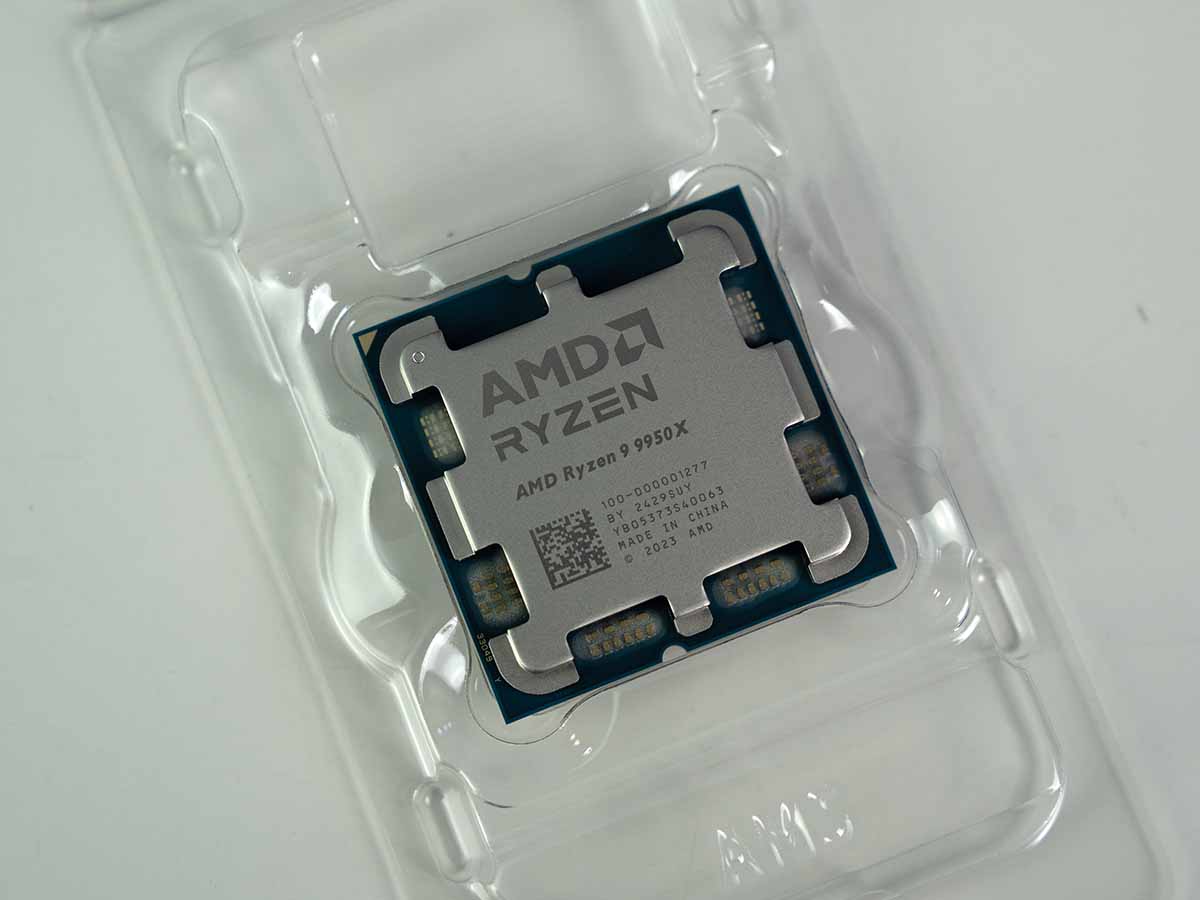
Cores
16
Threads
32
Boost clock speed
5.7 GHz
Base clock speed
4.3 GHz
L3 Cache
64 MB
TDP
170 W
Platform
AMD Socket AM5
Shop on Amazon
CHECK PRICEAMD Ryzen 9 7950X
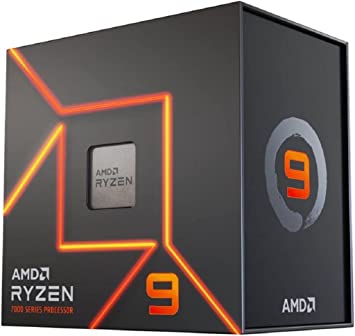
Cores
16
Threads
32
Boost clock speed
5.7 GHz
Base clock speed
4.5 GHz
L3 Cache
64 MB
TDP
170W
Platform
AMD Socket AM5
Shop on Amazon
CHECK PRICESpecifications
On paper, it seems as though these CPUs are one and the same, with the same core count, thread count, cache, TDP, PPT, and socket, you would be forgiven for thinking so, but as we mentioned before, it all comes down to the IPC improvements that Zen 5 bring over Zen 4.
| Specification | Ryzen 9 9950X | Ryzen 9 7950X |
|---|---|---|
| Cores | 16 | 16 |
| Threads | 32 | 32 |
| Base Clock | 4.3GHz | 4.5GHz |
| Boost Clock | up to 5.7GHz | up to 5.7GHz (XFR: 5.85 GHz) |
| L3 Cache | 64MB (shared) | 64MB (shared) |
| TDP | 170W | 170W |
| PPT | 230W | 230W |
| Socket | AM5 | AM5 |
| Core architecture | Zen 5 | Zen 4 |
It even seems like the 7950X has a slight edge in terms of core frequency, but it won’t be enough to dampen the flames of Zen 5 especially since we don’t know the XFR frequency of the 9950X just yet. We reviewed the 7700X and we know it to be an efficient and capable processor, so it’ll be interesting to see the differenced in performance that the specifications bring.

Cores and Threads
The number of cores and threads in both of these CPUs match exactly, but it doesn’t matter, because the 9950X has a trick up it’s sleeve. That trick is the Zen 5 architecture, as it offers a 16% uplift (by AMD’s reckoning) in IPC over Zen 4. What that means is, that the cores have more transistors in them, making them better at processing instructions.
Zen 5 is built on the 4nm process, and Zen 4 is on the 5nm process, it doesn’t seem like much of a change but that change adds up when you quantify the billions of transistors each of these CPUs hold. Because the transistors are smaller in the Zen 5 CPU, more of them can fit into each CPU core, allowing them to process more instructions per cycle (IPC). So, even though it doesn’t look like it on paper, the 9950X has a real edge here.
Core speed
Core speed means more when the CPU has a stronger core, luckily, the 9950X’s Zen 5 cores dominate the Zen 4 cores of the 7950X. IPC works via a cycle, that’s what the “C” stands for in IPC. This refers to the CPU instruction cycle and is the repetitive function of a CPU.
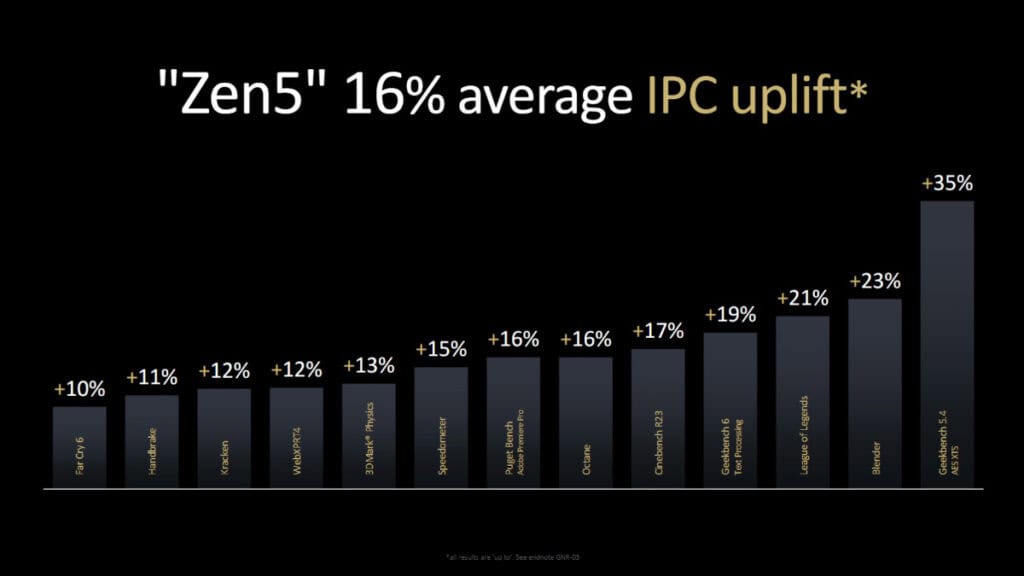
Clock speed is how many times the CPU cycles every second, and 5.7GHz is 5.7 billion times every single second. Now, because there are more transistors available in the 9950X’s cores, it has a stronger capacity for decision-making. That means that each cycle is more valuable in the 9950X regardless of speed. Even if the clock speed of the 9000 series CPU was a little slower, it’d still likely outdo the 7950X performance-wise.
Either way, both CPUs have the same boost speed, so it looks like it’s an even playing field anyway. With the 9950X presumably also having PBO, the XFR should be on par, or greater than the 7950X.
Cache
Both of the CPUs have the same amount of cache memory, but it’s likely that the 9950X has a much faster cache given that AMD is boasting double the cache bandwidth in press materials.
Cache is king in CPUs, it’s too slow to go hunting for instructions in the system memory, so CPUs have dedicated memory called cache, which is much easier and faster to access. That’s where CPUs store their pending and completed instructions ready for them to be whisked off back into memory.
TDP and PPT
The TDP and the PPT of both these CPUs are the same, starting to sound like a broken record here, but one thing we can assume is that the 9950X is more powerful, and if it can perform better for the same amount of energy then it’s technically the more efficient offering.
TDP is the maximum amount of thermal energy, measured in Watts, that a CPU can give off under normal operating conditions. PPT on the other hand is the maximum power the motherboard will allow through the voltage rails to the CPU, this is a hard limit and you won’t be able to increase it.
Price predictions
We already know the price of the Ryzen 9 7950X, you can find one now for around $500, but we’re left guessing as to the price of the 9950X, The best we can do is use some historical data and make an educated guess based on prices of previous popular CPUs on launch.
- 7950X- $699
- 7900X – $549
- 7700X – $399
- 5700X – $299
- 5900X – $549
- 3900X – $499
- 14900K – $589
- 13900K – $589
- 14700K – $409
- 13700K – $409
Based on these numbers, we’d like to see the 9950X launch for at least the same price as it’s predecessor, the 79050X, for $699. However, the economy has changed a lot since then, prices have skyrocketed and we might be left footing the bill for the extra cost. Even if it does retail for the same price the 7950X did, it’ll have to provide some good increases to be worth it against a processor $200 cheaper.
Graphical capabilities
The Ryzen 9 9950X and the 7950X both have graphical capabilities. In fact, WePC was very impressed with the RDNA 2-based iGPU in the 7000 series. It managed to benchmark CS:GO (back when it was CS:GO) at 130FPS, which is massive for a 2 CU GPU. This time, however, we have RDNA 3 powering the duel CU iGPU inside the 9000 series. Capable of a variable clock speed of 400MHz – 2,200MHz.
How do these CPUs compare generationally?
We’ve discussed how the core generation may affect performance in the comparison between the 9950X and the 7950X, but what about the platform? How does the supporting hardware affect your ownership of each?
Well, both of the CPUs can sit on the same generation of hardware, and the same chipset motherboards, this is because they both belong to the same socket, AM5. There will be a motherboard chipset update to X870E, taking the flagship crown from the X670E, like skipping the 700 series so as to not appear behind Intel’s upcoming boards.
The new chipset offers vast improvements over the X670, such as more power phases, better connectivity, and more RGB, of course. But you might have to wait a month or so for the new motherboards, as they may not be released until September.
Alternatives to the 9950X and the 7900X
We have some alternatives for you to sink your teeth into, there are offerings from both AMD and Intel and at different ends of the scale If you’re interested in a lower-end offering that produces pretty damn good performance in gaming workloads. We are of course talking about the 5800X3D. Per benchmark leaks on Geekbench 6, the 9950X seems to be on par with the 14900K, so it’d be rude not to also offer it as an alternative.
-
Intel Core i9-14900K
- Cores: 24 (8P-16E)
- Threads: 32
- Boost clock speed : P-Core 5.8GHz / E-Core 4.4GHz
- Base clock speed: P-Core 3.2GHz / E-Core 2.4GHz
- L3 Cache: 36 MB
- TDP: 253W
-
Intel Core i5-13600K
- Cores: 14 (6P-8E)
- Threads: 20
- Boost speed : P-Core 5.1GHz / E-Core 3.5GHz
- Base speed: P-Core 3.5GHz / E-Core 2.6GHz
- L3 Cache: 24MB
- TDP: 181W
-
AMD Ryzen 7 5800X3D
- Cores: 8
- Threads: 16
- Boost speed : Up to 4.5 GHz
- Base speed: 3.4 GHz
- L3 Cache: 96 MB
- TDP: 105W
-
AMD Ryzen 9 7900X
- Cores: 12
- Threads : 24
- Boost clock speed: 5.6 GHz
- Base clock speed: 4.7 GHz
- L3 Cache: 64 MB
- TDP: 170 W
What CPU is right for you?
Each of these CPUs on offer has Its advantages, but it’s hard not to rule in favor of the 9950X here, technically it is the more power-efficient CPU it should also offer a little more in the performance department too if the metrics on Zen 5 are to be trusted. If you need a CPU that can smash through probably anything you can throw at it, such as harsh multi-threaded workloads like simulation tasks, encoding, or data crunching; this might be the CPU for you. As long as it doesn’t release at an extortionate price. The power that Zen 5 holds over Zen 4 is incredible, an IPC increase of 16% is very hard to ignore.
On the other hand, the 7900X is still a powerhouse of a processor that you can still use on the latest generation of motherboards. So it’s not like you have to sacrifice any connectivity. You’ll still have to wait for the 800 series motherboards to be released though, nothing will change that. This CPU can still handle a lot, it’s probably way more than you need already, I have a 5900X and I don’t use it to its full potential.
Anyway, both CPUs offer fantastic performance, but if you need the best of the best for high-intensity workloads, then the 9950X is the one to go for, if you want to save some money, but still wish to take advantage of all that AM5 has to offer, then the 7950X could be the better choice for you.
I asked fellow PC Guide experts, Sebastian and Ussamah, for their opinion on the subject, here’s what they had to say:
The fight between the most powerful 9000 series CPU, the 9950X, and the most powerful 7000 series CPU, the 7950X, was bound to happen. However, the answer is clear as day when we consider that the 9900X, the second in line, was able to beat the 14900K in a single-core showdown.
However, just because there is a more powerful processor on the block doesn't mean the 7950X lost all its credibility. It is still a very powerful CPU and should power any gaming or professional rig for years to come. A neat aspect of this matchup is that both processors use the AM5 socket, meaning you won't incur the extra cost of moving to the newer platform. That said, the performance difference due to the architecture will definitely be there.
So, I believe it comes down to affordability and whether you need to upgrade to the 9950X or just want it.
Ussamah Mehmood
The flagship of each generations, excluding the X3D choices, these Ryzen 9 CPUs offer the top specs or the AMD range. Both have a whole 16 cores inside and so are a great choice for multi-threaded and intensive workloads like rendering and encoding. But the 9000 series does come with the benefits of generational improvement and that mainly comes from the lower process size. Dropping down to 4nm means you get more transistors on board providing more processing capabilities. Combined with the same TDP and PPT that means a greater efficiency.
But the 7950X does come with a slightly higher boost clock out of the box, although your setup might change this up as well. Along with that the new generation might lower the price of the 7000 series and so could provide you a better value choice considering its also on the AM5 platform and is unlikely to be hugely behind.
Sebastian Kozlowski



